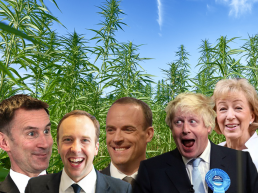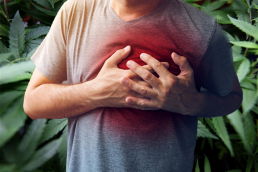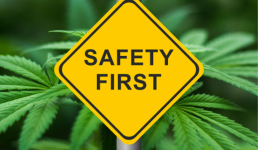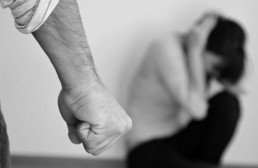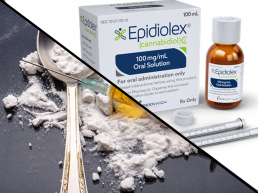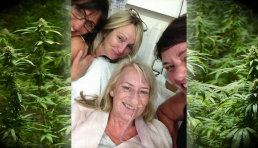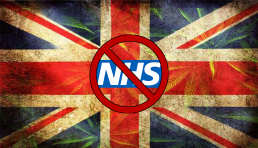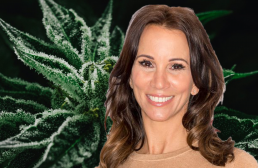For the few, not the many: Conservative MPs criminalise cannabis despite admitting use
For the few, not the many: Conservative MPs criminalise cannabis despite admitting use
One rule for them, another for us.
As we draw closer to the election for the new Conservative Party leader, and for the honour of Prime Minister, more and more candidates are admitting they have used cannabis, a drug which they have continually criminalised.
In a seemingly desperate attempt to seem relatable to the British public, leadership hopefuls from across the Conservative Party have become increasingly vocal about their historic drug use, forgetting that 100,000s of lives have been destroyed by laws which outlawed the very same use of the very same drug.
So far, 5 of the leadership contenders have admitted to using cannabis in the past:
- Boris Johnson
- Jeremy Hunt
- Andrea Leadsom
- Dominic Raab
- Matt Hancock
Boris Johnson famously told GQ in 2007 that he, like many students, had tried cannabis at university:
“There was a period before university when I had quite a few (cannabis joints).
“It was jolly nice.
“But apparently it is very different these days. Much stronger.
“I’ve become very illiberal about it. I don’t want my kids to take drugs.”
Despite admitting that he had regularly used cannabis as a youth, Boris has no issue with enforcing laws which seek to destroy the lives of others caught with the very same substance.
Stop and Search policies advocated by Boris have been proven time and again to disproportionately target poor, black youths, especially in London.
According to Full Fact there were over 300,000 stop and searches in 2016/17. The main reason for stops was drugs (including the very same cannabis Boris enjoyed as a youth).
Government officials explained the racial undertones to Stop and Search policies:
“While stop and searches on white people have decreased by 78 percent, stop and searches on people from BAME communities decreased by 69 percent. The decrease for black people was even lower, at 66 percent.”
For Boris, cannabis is apparently a luxury afforded only to the elite, white, class, made apparent in his absence from the most recent vote on legalising cannabis.
Britain’s Foreign Secretary, Jeremy Hunt, also openly admitted to The Times that he used cannabis while travelling as a younger man:
“I think I had a cannabis lassi when I went backpacking through India.”
Hunt held the Health Secretary position during the introduction of medical cannabis into UK law, but like his fellow ‘pot head’ Johnson has abstained on the most recent vote to legalise cannabis.
One of the more surprising admissions from the Tory leadership candidates comes from Andrea Leadsom.
The former leader of the Commons made the shocking admission in response to the revelation that leadership rival Michael Gove had taken cocaine.
According to Leadsom:
“Everyone is entitled to a private life before becoming an MP.
“I smoked weed at university and have never smoked it again since.”
For Leadsom to casually brush off cannabis use as an ‘entitlement’ shows a complete lack of decorum.
Students caught with cannabis at university can have their lives ruined due to policies Leadsom’s Party gleefully enforces. Cannabis cautions can also prevent prospective students from getting a place at university.
Why are MPs the only ones “entitled to a private life”?
Again, Leadsom abstained from voting to legalise a drug which she personally enjoyed at university.
Dominic Raab also admitted to using cannabis as a student:
“At university, I tried cannabis, not very often as I was into sport.
“It was a mistake, particularly the more I know now about the link between it and mental health issues.
“But it was a long time ago and was particularly few and far between.”
While Raab got lucky, avoiding being caught, for the majority of the population in Britain it only takes getting caught with cannabis once to have your life ruined (depending on where you were caught and with how much, due to Britain’s “postcode lottery” where some police forces are more lenient than others).
Sources close to Matt Hancock, the current Health Secretary, informed the Telegraph of the Minister’s past drug use, claiming he had “tried cannabis a few times as a student, but has not taken any illicit drugs since.”
Hancock, like Leadsome, believes that “everyone has a right to a private life.”
Tory MPs are so far removed from the reality of life in Britain. They talk about their right to a private life, but find no issue with destroying the private life of UK citizens for doing the exact same thing they once did. This gross hypocrisy highlights the extent of the failure of the “War on Drugs.”
If Prime Minister hopefuls (the most prestigious job in the country) have used cannabis, then why is it wrong for their citizens to do the same? Their “Do as I say, not what I do” attitude is emblematic of everything wrong with Britain’s current drug policies.
Politicians should have a right to a private life, so long as this ‘luxury’ is universally applied.
Research finds medical cannabis may help prevent death from heart attacks
Research finds medical cannabis may help prevent death from heart attacks
A study has found evidence that medical cannabis helps prevent death following heart-attacks.
Researchers at the University of Colorado launched a study in 2018 to investigate their hypothesis that due to cannabis being legalised around the world, leading to an increase in use, more people being admitted to hospital due to acute myocardial infarctions (AMI, the medical name for a heart attack) will, naturally, be cannabis users.
Due to a lack of research into “the impact of marijuana use on outcomes following cardiovascular incidents such as AMI,” the researchers analysed hospital records for 1,273,897 AMI patients. They then focused on the 3,854 among that group who admitted to marijuana use
The researchers believed that their study would find that cannabis users are at “an increased risk of adverse outcomes in AMI patients.”
They could not have been more wrong. As it turns out, the researchers found that medical cannabis users have a better chance of surviving heart attacks than those who do not use the medicinal herb:
“These results suggest that, contrary to our hypothesis, marijuana use was not associated with increased risk of adverse short-term outcomes following AMI.
“Furthermore, marijuana use was associated with decreased in-hospital mortality post-AMI.”
The researchers also found that patients who were medical cannabis users had “less coronary artery disease” than patients who did not report usage of cannabis.
However, perhaps fairly obviously due to some patients consuming their medical cannabis via inhalation, cannabis users were more likely to be placed on mechanical ventilation while being treated in the hospital.
Despite needing a machine to aid breathing, the research suggests that if you want to avoid dying due to a heart attack, it may be a wise decision to consider medical cannabis as regular part of your medication.
This research has the potential to be life-saving.
According to the British Heart Foundation:
“Heart and circulatory diseases cause more than a quarter of all deaths in the UK, that’s nearly 170,000 deaths each year – an average of 460 deaths each day or one every three minutes in the UK.
“There are around 7.4 million people living with heart and circulatory disease in the UK: 3.9 million men and 3.5 million women.”
While more research will be needed into the impact medical cannabis has on the long and short term effects of suffering a heart attack, studies like this show the great potential medical cannabis has for reducing the number of people who die from heart attacks.
By expanding access to medical cannabis to all on the NHS, the British Government could potentially help prevent millions of preventable deaths.
For more medical cannabis news, follow Medical Marijuana UK on Facebook.
References and further Reading
https://journals.plos.org/plosone/article?id=10.1371/journal.pone.0199705#sec009
Legalising medical cannabis leads to a 34% reduction on workplace deaths
Legalising medical cannabis leads to a 34% reduction on workplace deaths
Fewer people are dying at work and it’s all thanks to medical cannabis.
A study from 2018 found that States which legalised access to medical cannabis saw a 34% decrease in workplace deaths for adults aged 25-44.
The researchers who conducted the study believe this is because workers are drinking less alcohol, and taking less pharmaceutical medications, due to having the legal option of cannabis.
Medical Cannabis users have been subjected to years of discrimination in the workplace: randomised drug tests which
Researchers at Montana State University and the University of Colorado analysed data from all 50 states between 1992 and 2015 to investigate the impact legalising medicinal cannabis had on workplace safety.
Expected workplace fatalities went down by an average of 19.5% for workers aged 25-44 in States which legalised medical cannabis, with this rising to 33.7% among the same age-group in States with medical cannabis laws for five years or more.
While those ages 25-44 saw a reduction in workplace fatalities, the trend did not continue outside of that age group. Workers who were ages 16 to 24, or 44 and above, saw no statistically significant changes in workplace deaths.
What should be noted is that while workplace deaths among those age-groups did not decrease, they also did not increase, throwing serious doubt on the accusations by anti-cannabis campaigners that legalising medical cannabis will lead to more deaths and accidents in the workplace.
Discussing the results of the study with Leafly, co-author of the study, D. Mark Anderson, Ph.D., explained that this age-dependent result reflects the known effects of cannabis laws:
“I think the fact that the effects show up for young adults only was pretty interesting and consistent with some of our other research on medical marijuana laws.
“We find that it is generally young adults who are affected by these laws.”
The researchers know that legalising medical cannabis leads to fewer workplace deaths, but they don’t know why:
“We were actually unable to pin down the precise mechanism through which medical marijuana laws affected workplace fatalities.
“At the end of the day, we could only speculate as to why these laws may have affected workplace events.”
One of the leading theories is simple: cannabis is a lot safer than other, legal, drugs, specifically alcohol and pharmaceutical medications. It is possible that workers with legal access to medical cannabis will reach for the herb rather than the booze.
Anderson’s previous research gives this theory strength, finding that medical cannabis laws are associated with swapping between alcohol and cannabis, leading to less damage caused to society by the former.
Anderson’s 2012 study found that traffic fatalities fall by 8-11% the first full year after legalisation. According to the study, “Alcohol consumption appears to play a key role.”
The legalisation of medical cannabis saw a 7.2% decrease in traffic fatalities in which there was no reported alcohol involvement. For comparison, States which legalising medical cannabis saw an average of 13.2% decrease in fatalities in which at least one driver involved had a positive BAC (Blood Alcohol Content) level.
The theory, then, is that it is far safer to be high on cannabis than drunk on alcohol. If workers turn up to the workplace drunk or hungover, they increase their chance of causing a fatal accident, whereas if they turn up stoned, there is a far greater chance this will lead to a fatal accident.
States with medical cannabis laws also had a 24.8% lower mean annual opioid overdose mortality rate.
This is of interest to Anderson’s study, which found greater fatality reductions in states where ‘pain’ was a qualifying condition to receive cannabis.
Opioids have a wide-range of dangerous side-effects, including “Brian fog,” which can obviously cause issues in the workplace. Medical cannabis, on the other hand, does not cause this.
Anderson concluded that: “further investigation is required to determine whether this result is attributable to reductions in the consumption of alcohol and other substances that impair cognitive function, memory, and motor skills.”
For more medical cannabis news, follow Medical Marijuana UK on Facebook!
Study finds that medical cannabis improves brain function after three months
Study finds that medical cannabis improves brain function after three months
Can medical cannabis really improve the way your brain works?
For many supporters of prohibition, cannabis use is often associated with a deterioration in mental abilities. Fuelled by Reefer Madness-era propaganda, the anti-cannabis lobby pushes the idea that just one use of cannabis could seriously damage your brain and the way it functions.
Those who do not want cannabis available as a first-option medication argue that the dangers far outweigh the benefits. Thankfully, due to detailed scientific research, we now have a better understanding of the true impact medical cannabis has on the brain.
A groundbreaking study from McLean Hospital, Massachusetts, has found new evidence that the impact medical cannabis has on the brain is a positive one.
Studying 22 medical cannabis patients for three-months, researchers found that medical cannabis actually improved task performance as well as changes in brain activation patterns.
Amazingly, brain activity in the the study participants after three months of medical cannabis use appeared similar to those shown in healthy, non-cannabis patients, suggesting that medical cannabis has the potential to normalise brain function relative to baseline, i.e. recover your brain function to what it was.
As well as improving brain function, the researchers noted, perhaps inevitably, that participants also reported improvements in clinical state and health-related measures as well as notable decreases in pharmaceutical medication use, particularly opioids and benzodiapezines following 3 months of medical cannabis treatment.
All patients (11 male, 11 female) were between the ages of 28–74 who reported seeking MMJ treatment for a variety of conditions including pain (13), anxiety/PTSD (10), sleep (10), mood (8), and “other” conditions (8), such as gastrointestinal issues, difficulty with attention, etc.
“Significant improvements” were reported by patients on measure of depression, impulsivity, sleep, and quality of life.
Patients also demonstrated significantly improved energy/fatigue and fewer role limitations due to physical health, which reflects how often patients’ physical health affects their work and other life activities. A trend also emerged suggesting improved social functioning. Patients also reported notable decreases in their use of opioids, benzodiazepines, antidepressants, and mood stabilisers.
The researchers believe that it is possible that reductions in conventional medications also influenced changes in brain activation patterns. Medical cannabis allows patients to come off dangerous pharmaceuticals which negatively impact their mood while offering minimal relief from pain.
For the study, 41 MMJ (medical cannabis) patients were enrolled onto the research programme. Of these, only 22 were selected for further study, as their pre-MMJ treatment data was available as a control. To qualify for the study, participants had to be at least 18 and have an IQ of 75 or above.
In order to examine the effect of medical cannabis on task-related brain activation, researchers asked their MMJ patients to complete a Multi-Source Interference Test (MSIT) while undergoing functional magnetic resonance imaging (fMRI), both before they began medical cannabis treatment and three months after the start of the trial.
The patients were asked to certify their MMJ use and were required to have been abstinent from cannabis use for at least 2 years prior to the study to ensure that the researchers were investigating the impact of the cannabis provided by them rather than random doses of cannabis outside of the trial.
Patients reported using MMJ products an average of 5.34 days per week and 1.83 times per day for an overall average of 10.26 total episodes of MMJ use per week.
There was a wide-variety in the MMJ products patients used, including smoking and vaporising flower, as well as use of oil and concentrates (vaporised and oral administration), tinctures, edibles, and balms.
The researchers also collected data regarding conventional medication use, clinical state, and health-related measures at each visit to ensure the most reliable data was collected during the study.
Those eligible to participate were enrolled in a larger longitudinal study designed to assess the impact of MMJ on cognition and brain function over the course of 12–24 months. So far, we only have the results of the first 3 months of the study.
Researchers concluded that further research will be needed to clarify their findings, especially to compare the impact MMJ has on brain function vs the impact that recreational use has.
The results of the study suggest that not only does medical cannabis improve brain function, especially in those who have been subjected to years of pharmaceutical medications , but it improves a range of other areas in life, such as overall life quality and happiness.
Studies like these suggest that medical cannabis should be the first medication offered to patients rather than the last. Denying access to a medication which is scientifically proven to be safer and more effective than dangerous, addictive, pharmaceuticals offers no benefits to the patient. It only benefits those who are selling outdated medicinal products.
Despite medical cannabis being legalised in the UK on 1 Nov 2018, access to the potentially life-saving medication is hard to come by for the vast majority of patients in the UK. No prescriptions for medical cannabis have been granted on the NHS, forcing desperate families to seek out private prescriptions, which can cost up to £40,000 a year.
Follow Medical Marijuana UK on Facebook for more medical cannabis news!
References and further Reading
New study finds that decriminalising cannabis reduces serious injuries from domestic violence
New study finds that decriminalising cannabis reduces serious injuries from domestic violence
- Researchers in the US have found evidence decriminalising cannabis reduces severity of domestic abuse attacks
- Decriminalisation reduced domestic assaults involving serious injuries by 22.5%
- Serious domestic assaults involving offender alcohol intoxication were reduced by 40.7%
- The number of serious domestic assaults involving weapons also went down by 23.1%.
A new study from the US has found evidence that decriminalising cannabis leads to a reduction in the severity of domestic abuse.
Researchers at the University of Pennsylvania investigating the impact of relaxing laws on cannabis found that domestic assaults resulting in severe physical trauma, such as broken bones, significantly drops after decriminalisation.
While the study found that there was a reduction in the severity of domestic abuses, decriminalising cannabis did not also lead to a decline in the number of abuses reported.
The results of the study challenge “Reefer Madness”-era propaganda which claims that cannabis induces violent impulses.
Researchers analysed NIBRS data on assaults in 25 US States from 2005-2016, categorising assaults based on the extent of injury: total assaults, domestic assaults, non-domestic assaults at all levels of seriousness, as well as serious assaults, serious domestic assaults, and serious non-domestic assaults, were employed as dependent variables.
The analysis showed that decriminalisation reduced domestic assaults involving serious injuries by 22.5%. This was the only result robust to all subsequent checks.
The researchers found that decriminalising cannabis also reduced the number of domestic abuse cases involving alcohol, which has long been associated with domestic abuse, as alcohol truly is a violence-inducing narcotic.
Serious domestic assaults involving offender alcohol intoxication were reduced by 40.7% and the number of serious domestic assaults involving weapons also went down by 23.1%.
The researchers suggest that offering people the choice between cannabis and alcohol seems to be the best way to help reduce the severity of domestic abuse, as given that choice, evidently some people would ditch the booze in favour of cannabis:
“Given the evidence that alcohol is a substance which aggravates violence, the alcohol finding suggests both that (a) marijuana and alcohol are substitutes rather than complements, and (b) the substitutionary use of marijuana likely mitigates the severity of assaults.”
The calming effect that cannabis has was also noted by the researchers as a proposed reason for the reduction in domestic violence injuries:
“Despite the longstanding debate over whether marijuana contributes to violence, the medical literature suggests that marijuana is effective as a short-term sleep aid and may contribute to excessive daytime sleepiness.
“By making would-be assailants sleepier, marijuana consumption may make the nature of assaults less serious and injuries less severe. This is likely the simplest explanation and is certainly incomplete.”
The authors of the study concluded that:
“While all forms of domestic violence can be uniquely traumatizing, incidents resulting in serious injury can lead to lasting physical, mental, and financial consequences for the victim.
“Hence, it is surprising that most literature on the effects of policy intervention on domestic violence treats such incidents as homogeneous rather than considering differing levels of victim injury.
“This study provides evidence that decriminalization of marijuana leads to substantial declines in victim injury.
“Among domestic violence assaults where the victim suffered a serious injury, there was a significant decline in incidents where the offender was under the influence of alcohol or used a weapon.”
“This study provides evidence that decriminalization of marijuana leads to substantial declines in victim injury.”
While decriminalising cannabis leads to a decrease in the severity of domestic abuse, the trend does not follow with legalising medical cannabis.
The researchers believe that one possible answer is that:
“States which have legalised medical marijuana are much involved in regulating the substance —and restricting access to it.
“Doubtless, the legalisation of medical marijuana may increase rates of consumption for recreational purposes, as some amount of medical marijuana makes it way to the general public.
“Nevertheless, medical legalisation may still not increase consumption to the extent that it affects rates of serious domestic assault.”
Putting too many restrictions on cannabis via over-regulation obviously restricts access. The evidence is clear that to help reduce the severity of domestic abuse, thus protecting some of the most vulnerable members of society, Governments must maximise access to cannabis for its population.
By offering citizens the choice between cannabis and alcohol, Governments can reduce the worst effects that alcohol has on society. Piecemeal legalisation of medical cannabis benefits only the wealthy few who are fortunate enough to be involved in the exclusive legal medical cannabis industry, especially in the UK, where only a few companies are legally allowed to grow and manufacture cannabis for medicinal purposes.
However, the researchers conceded that is currently impossible to test their theory with the crime data set they used, as it does not differentiate the use of cannabis from other drugs. Further research will be needed before definitive conclusions can be made.
Domestic abuse in the UK has been rising over the years. According to the Office for National Statistics:
“In the year ending March 2018, an estimated 2.0 million adults aged 16 to 59 years experienced domestic abuse in the last year (1.3 million women, 695,000 men).
“The police recorded 599,549 domestic abuse-related crimes in the year ending March 2018. This was an increase of 23% from the previous year.”
According to Refuge, a domestic violence charity, “two women are killed each week by a current or former partner in England and Wales.”
Decriminalising cannabis has the potential to save these women. It is now up to the British Government to decide if they are willing to adopt policy which could save women and men from serious domestic abuse.
For more medical cannabis news, follow Medical Marijuana UK on Facebook.
New study finds that CBD can be effective in treating heroin addiction
New study finds that CBD can be effective in treating heroin addiction
- American researchers have found more evidence that CBD can be used to help treat addiction to heroin
- Addicts given CBD were 2-3 times less likely to exhibit cravings for heroin than those given placebos
- Anxiety and stress levels were also significantly lower in those who were given CBD
A new study has found further evidence that Cannabidiol (CBD), the non-psychoactive cannabinoid, has the potential to help treat heroin addiction.
The study, conducted by researchers at the Addiction Institute of Mount Sinai, gave CBD to patients addicted to heroin to investigate the impact it would have on their cravings and their level of anxiety.
The researchers, led by Yasmin Hurd Ph.D., recruited 42 adults addicted to heroin for at least 13 years from social services groups, halfway houses and treatment centers. The participants had to have been clean from heroin, as well as detox drugs such as methadone or buprenorphine, for at least a month and were required to abstain from using during the entire study period.
The participants were then divided into three groups:
- The first group were given 800mg CBD
- The second group were given 400mg CBD
- The Third group was a control group, given a placebo
Each participant was provided their dose of CBD or placebo once a day for 3 consecutive days. Researchers then followed their progress over the following two weeks.
As well as receiving varying doses of CBD, the addicts were also shown images and videos of nature as well as images of drug use and heroin-related paraphernalia, like syringes and bags of heroin. Researchers then asked them to rate their craving for heroin and their levels of anxiety.
The researchers found compelling evidence that CBD could be used in future treatments for addicts.
A week after the participants were given their last dose of CBD, the research team found that those who had been given CBD had a two, to three-fold, reduction in cravings compared to the placebo group. The difference between the two CBD groups, according to Hurd, was negligible, indicating that more does not necessarily mean better.
The heart rates and levels of cortisol, the “stress hormone”, of the addicts given CBD were significantly lower than those who only received the placebo.
Some of the participants reported side-effects to the CBD, such as headaches, tiredness and mild diarrhea.
“[CBD] can really help save lives.”
– Yasmin Hurd PhD, lead researcher
he researchers used Epidolex, made by GW Pharmaceuticals, as the source of CBD for the study, as they knew the exact concentration of CBD, as well as other ingredients, in the drug, which was essential for reliability.
The findings from the study mirrored those from a pilot study ran previously by Hurd, who believes a longer-term study, following addicts for up to 6 months, will be needed for more conclusive evidence.
Discussing the results of the study, Dr. Julie Holland, a former assistant professor of psychiatry at the New York University School of Medicine, expressed her optimism for the future of addiction treatment:
“This is an extremely significant paper.
“We need to utilise every possible treatment in helping people with chronic pain to find other ways to manage their symptoms and in people with opiate addiction to find relief.
“CBD not only manages the anxiety and cue/craving cycle, it also diminishes the original pain and inflammation that leads to opiate use in the first place.”
Hurd’s aim for the next study is to answer more questions, specifically, finding out more information about the best dose, frequency of dosage, and how many times CBD needs to be administered before cravings begin to be diminished.
Hurd concluded that, ultimately, “[CBD] can really help save lives.”
Heroin and opium addiction is ravaging communities across the US. According to the National Survey on Drug Use and Health (NSDUH), in 2016 about 948,000 Americans reported using heroin in the past year.
Traditional treatments are failing addicts, leading researchers to look for alternative treatments, inspiring Hurd and her team to launch the study into CBD as the potential alternative.
If CBD can safely help addicts come off their dependence to opium, it must be investigated further.
Follow Medical Marijuana UK on Facebook for more medical cannabis news.
British Mother given all-clear after using medical cannabis oil to treat terminal cancer
British Mother given all-clear after using medical cannabis oil to treat terminal cancer
- Joy Smith was diagnosed with incurable bowel and stomach cancer in 2016
- After chemo gave her sepsis, Joy had to find an alternative treatment: medical cannabis
- The mother has now been given the all-clear, showing that cannabis has an amazing potential to be used as a cancer treatment
- Cannabis oil is still illegal in the UK, unless you have a prescription, which costs up to £40k a year
A British mother, who has illegally been using medical cannabis, has been given the all-clear by doctors after battling terminal cancer for two years.
Joy Smith, 52, was diagnosed with incurable bowel and stomach cancer in August 2016. Her doctors told her she only had 6 weeks to live.
However, two-years later, Joy has been given the all-clear, all thanks to an illegal medicine: medical cannabis.
Joy was initially treated with traditional cancer treatments, going for chemotherapy treatments every two weeks for three days. Doctors told Joy that the chemo would not save her, but might buy her more time.
However, the chemo had to be stopped due to developing sepsis, forcing Joy to find an alternative, less threatening, treatment.
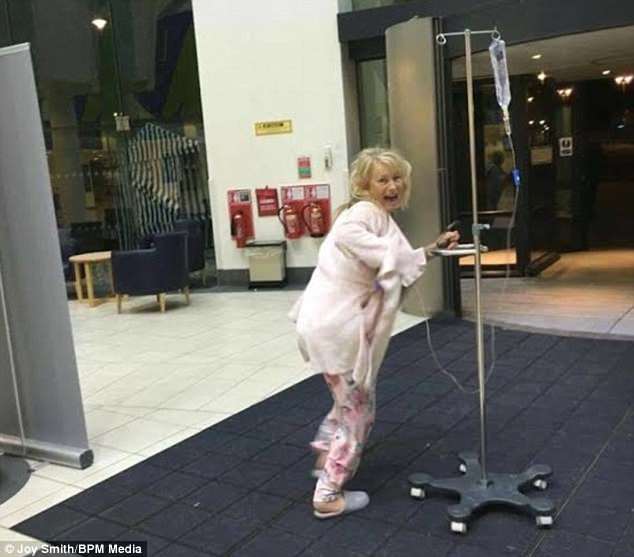
Fortunately for Joy, her friends had been researching alternative cancer treatments online, coming across medical cannabis, providing her with her first dose of medical cannabis in the form of a tablet.
Joy was initially reluctant to try medical cannabis due to her lack of knowledge about it, but did so anyway out of desperation to survive the cancer.
The first dose of medical cannabis left Joy feeling “drunk” and struggling to speak.
After researching medical cannabis herself, Joy came across amazing stories online of others who had successfully treated their cancers with the illegal drug.
The medical cannabis proved to be a real revelation for the British mother. After months of regularly taking cannabis, containing the apparently ‘dangerous’ THC, scans showed that Joy’s ‘inoperable tumours’ had nearly completely disappeared.
Speaking to the Daily Mail, Joy expressed her surprise and delight at the news she had been given the all-clear by her doctors:
“I keep pinching myself to see if this is real. I am being monitored every three months, but other than that I have no more treatment planned.
“I am just so happy. This is all down to the cannabis oil. I shouldn’t be here, but I am.
“My daughter is in Australia at the minute and when I told her she thought I was lying.
“Everyone around me has been amazing, I have an army behind me and they’re all so happy.”
“I am just so happy. This is all down to the cannabis oil. I shouldn’t be here, but I am.”
– Joy Smith, Medical Cannabis Warrior
Joy truly does have an army behind her: The mother set up a petition to truly legalise access to medical cannabis in the UK, which has gathered over 82,0000 signatures to date.
Inspired by her own success, Joy is now writing her incredible story into a book to help guide others in their own medical cannabis journeys:
“I have got to get it legalised.
“I am so happy, happier than I have ever been. I just keep sharing the petition and hope it will make a difference.
“I believe my reason for being here is to help everyone else. Unless you have been faced with death you don’t know.
“I have to thank all the nurses and the doctors at University Hospitals Coventry and Warwickshire, they’ve been amazing and especially, Dr Sohgi.
“They have been the best for me, even though I have defied all their science.”
Cannabis proved to be the gift which kept on giving for Joy. Not only did cannabis help her win the seemingly-impossible battle against cancer, but won her thousands of pounds! Joy won a competition she entered while high, winning £84,000! Joy plans on using the money to tick everything off her bucket list.
Medical cannabis can truly be life-saving medicine. Without it, people like Joy might not be with us today. Access to medical cannabis, however, is still heavily restricted in the UK, despite it being legalised in November 2018.
By sharing stories like Joy’s, we help raise awareness about the beautiful potential cannabis has in the future of modern medicine. Stories like Joy’s help to challenge the negative stigmas surrounding cannabis, showing the world that cannabis has the potential to be a revolutionary medicine.
For more medical cannabis news, follow Medical Marijuana UK on Facebook.
NHS to launch review as British families forced to pay £40k for medical cannabis prescriptions
NHS to launch review as British families forced to pay £40k for medical cannabis prescriptions
- Government drug task force APPG has put 22 families to speak to the NHS
- Patients must pay up to £40,000 per year to get a private prescription for medical cannabis
- No prescriptions have been given on the NHS for medical cannabis
Twenty-two UK families who have been forced to pay £10,000s for private prescriptions for medical cannabis will be part of a NHS review into the prescribing of medical cannabis.
The All Party Parliamentary Group (APPG) on Medical Cannabis under Prescription has put forward the 22 families, who pay up to £40,000 a year for their cannabis prescriptions, to speak with NHS England as part of its “rapid processes evaluation” of the prescription of medical cannabis on the NHS.
Despite cannabis being legalised for medicinal use on 1 November 2018, the APPG claim there has yet to be a single NHS prescription of the drug. If British patients want legal access to medical cannabis they are being forced to go private.
Speaking to The Pharmaceutical Journal, Millie Hinton, secretariat for the APPG, explained how the families were forced to go private for their prescriptions after their NHS clinicians declined to prescribe them medical cannabis.
Health Secretary, Matt Hancock MP, revealed that on the 8th April 2019, he requested the NHS to “address barriers” in the prescription of medical cannabis by instigating an evaluation of their prescribing process.
We’re hoping this review helps with the understanding exactly what, in all these instances, is stopping clinicians prescribing [medical cannabis]…”
– Seema Kennedy MP, Pharmacy Minister
A parliamentary answer from Pharmacy Minister, Seema Kennedy MP, explained that the review into the prescription process will be “clinically led by the NHS […] drawing on further specialist support as require.” The process will also involve interviews with those directly involved in the prescribing process, including patients, carers and relevant trust staff.
Kennedy added that the APPG asked NHS England to provide an interim report, based on the evaluation to Hancock, “by then end of May 2019.”
Hinton said the end of May deadline was “optimistic”.
She added that many of the families put forward to speak with NHS England have children with severe intractable epilepsy and some have resorted to importing cannabis-based products from abroad through private prescriptions “at the cost of about £40,000 a year”.
Ben Griffiths, 10, diagnosed with drug-resistant epilepsy, suffered up to 100 seizures a day before starting medical cannabis treatment. Now, after using medical cannabis, he only sees 10 seizures a day.
Despite the obvious benefits of medical cannabis for the child, NHS clinicians are refusing to provide the young boy with the medicine. His family must pay £2,000 a month to make sure his seizures do not rise again.
Kennedy added “We’re hoping this review helps with the understanding exactly what, in all these instances, is stopping clinicians prescribing if you’ve got the evidence in front of you like that,” but was reserved about the process as NHS England “have been fairly vague in what the review looks like”, which she said has been “disappointing”.
For more medical cannabis new, follow Medical Marijuana UK on Facebook.
Loose Women star, Andrea McLean: cannabis oil “changed my life”
Loose Women star, Andrea McLean: cannabis oil “changed my life”
- Andrea McLean has revealed she is using CBD to treat anxiety caused by menopause
- Andrea claims the ‘lowest dose’ of CBD is enough to help her
- The reality TV star claimed she is now a “different person” due to the oil
Andrea McLean, 49, known for her regular appearances on ITV’s Loose Women, has revealed to The Mirror that she is taking CBD oil to help with anxiety and menopause symptoms.
The British celebrity, who recently appeared on Channel 4’s Celebrity SAS, disclosed in her interview that she has been struggling with crippling anxiety caused by menopause.
After initially treating her anxiety with propranolol pills, which provided relief helped, Andrea tried CBD after hearing about the legal medical cannabis product.
According to the day-time TV star, CBD has helped ‘massively,’ with her anxiety:
“[CBD oil] has made me less anxious because anxiety is still a key thing for me.
“Unless you have experienced it like I have, where it feels like there is a tiger in the room, then no one really understands what it is like. It is awful.”
Andrea went on to explain how ‘the lowest dose’ of CBD, along with the support of her husband is helping breath new life into the presenter:
“Before I started taking CBD oil my doctor recommended taking propranolol and it did change my life within a week. I am on the lowest dose and it has literally made me feel like a different person.
“It is not an anti-depressant but what I no longer feel is that sensation of being on high alert.”
“I’m a lot better, although I have still been known to cancel an hour before I am due to go out. Then I hate myself for it.
“I find being in social situations overwhelming. I lack confidence and I feel stupid. This is going to sound weak, in that ‘now she has to have a man in her life’ way, but since being with my husband Nick I am so much better.”
“Before I started taking CBD oil my doctor recommended taking propranolol and it did change my life within a week. I am on the lowest dose and it has literally made me feel like a different person.”
– Andrea McLean, British TV Star and Medical Cannabis Warrior
Andrea added some words of advice to others experiencing a tough time with their mental health:
“Clearly as you can see I have been through a lot in my life physically, mentally and emotionally but I really do believe that your past does not define your future and all of us have a strength that we don’t tap into enough and I want to encourage others to find that.
“Just because you have been through incredibly difficult times, they don’t have to define you.”
Andrea is the latest celebrity to announce they are using CBD oil for a variety of medicinal uses.
Pat Butcher, or Eastenders fame, announced she uses CBD oil ‘every day’ to treat pain and aches caused by her arthritis.
Olivia Wild also revealed she used a CBD body lotion while working on Broadway:
“Recently I did a play on Broadway for six months. My body was wrecked, [and] my neck was really tight.
“The CBD has relaxing benefits, and the idea is to avoid using too many painkillers.”
CBD, the non-psychoactive cannabinoid in cannabis, has quickly become a very popular heath supplement among both celebrities and the general public.
With more and more celebrities endorsing CBD, as well as full spectrum cannabis (Olivia Newton-John, for example, has successfully been treating her cancer with cannabis), medical cannabis overall has received some much-needed positive press.
Could the rise of CBD lead to the destigmatisation of full-spectrum medical cannabis? With people seeing just how much CBD is helping their friends and families, the facade that cannabis is just a recreational drug for ‘stoners’ could come crumbling down.
Follow Medical Marijuana UK on Facebook for more medical cannabis news!
New study finds medical professionals lack knowledge and confidence around cannabis
New study finds medical professionals lack knowledge and confidence around cannabis
- Pharmacists across the world claim they lack confidence and knowledge about cannabis
- In practice, pharmacists support the medicinal use of cannabis, but also express concerns
- 70% of pharmacists use self-directed online learning to inform their practice of prescribing cannabis due to lack of literature
A new study has found that pharmacists across the world have low self-belief and knowledge when it comes to medical cannabis.
Researchers at Queensland University reviewed 26 studies that looked at the concerns, beliefs, and knowledge about cannabis from a range of healthcare professionals, including doctors, nurses, and pharmacists. The samples were taken from Australia, Canada, Ireland, Israel, and the US.
In three of the studies reviewed, which were based in Australia, Canada, and the US, researchers found that while in practice pharmacists support the medicinal use of cannabis, due to a lack of in-depth knowledge about the pharmacology of cannabis, they also express concerns about the potential harms cannabis may cause patients.
Only half of the Canadian hospital pharmacists in one of the studies agreed that medicinal cannabis is effective. While these sentiments were not shared by their Australian and American counterparts, self-reported knowledge of cannabis was low in all three countries.
Pharmacists in the US study reported that they lack knowledge surrounding the actual science of how cannabis works medicinally, specifically the pharmacology, pharmacokinetics and pharmacodynamics of medical cannabis.
In both the Canadian and US studies, pharmacists also reported they have inadequate knowledge about the legislation and procedures concerning prescribing, cultivation and distribution.
Canadian pharmacists also claimed there an apparent lack of accessible literature was a major limitation when faced with clinical questions, forcing nearly 70% of pharmacists to use self-directed online learning to inform their practice.
The potential for recreational misuse, the risk of drug-drug interactions, and the potential for medicinal cannabis to be illegally re-sold onto the black market were among the top concerns reported by pharmacists.
“It is important to know their attitudes and concerns about the delivery and use of medicinal cannabis, what knowledge they have, and where they are getting their information.”
– Lead author, Kyle Gardiner
The researchers also found that Reefer Madness era-propaganda still commands a worrying amount of legitimacy among medical professionals, as 55% of Canadian hospital pharmacists reported they were uncomfortable with the potential link between medical cannabis and psychiatric illness, while a similar proportion in another study either disagreed, or were unsure, that medical cannabis is safe.
The review’s authors concluded that although healthcare professionals were relatively supportive of medical cannabis in clinic practice, their support was often “counterbalanced” by a lack of confidence, competence and concerns for the associated risks.
Lead author, Kyle Gardiner, from Queensland University of Technology in Brisbane, Australia, said:
“In almost all international jurisdictions, the involvement of at least one health professional is required for patients to acquire medicinal cannabis … so, clinicians are in the crosshairs and we need to understand their behaviours and engagement.
“It is important to know their attitudes and concerns about the delivery and use of medicinal cannabis, what knowledge they have, and where they are getting their information. However, these are a few pieces of a much larger picture.”
Follow Medical Marijuana UK on Facebook for more medical cannabis news!

